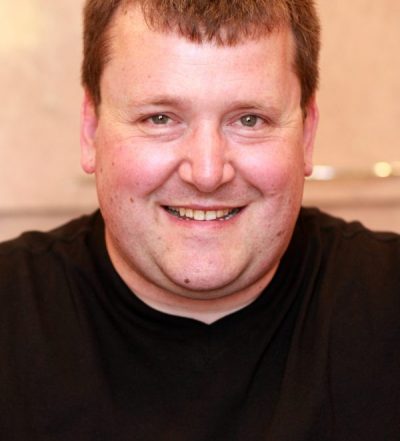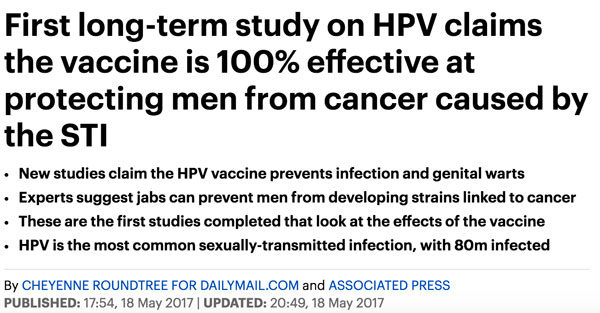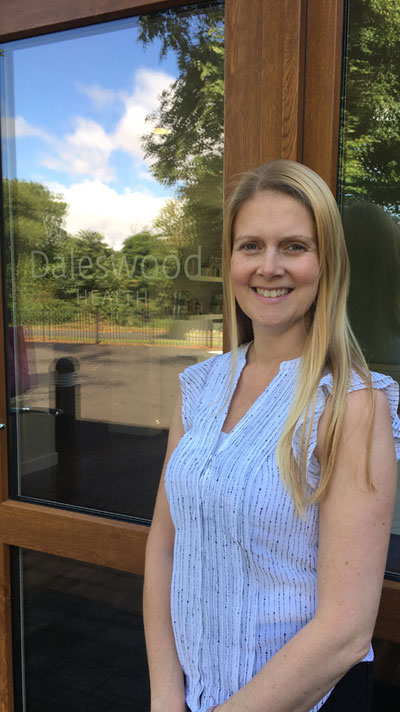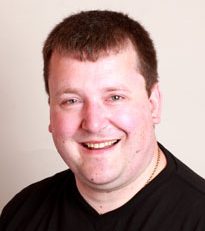HPV vaccination gap: Experts demand Parity for Boys
The controversial publication of the Joint Committee on Vaccination and Immunisation (JCVI) Interim Report on cancer-causing human papillomavirus (HPV) on 17th July 2017 provoked an incendiary response from healthcare professionals throughout the UK.
The report, which suggested vaccinations for boys would not prove cost-effective, runs counter to figures published by the HPV Action coalition of healthcare organisations and also appears to rely heavily upon a dubious ‘herd protection’ argument, despite widely available projections that these infections are soon set to overtake smoking as the leading cause of oral cancer.
The current status in the UK is that 80% of the population is expected to pick up HPV infections in their lifetime, with 5% of those expected to develop cancer as a direct consequence, allowing for current immunisation and detection rates:
“HPV is not a new epidemic,” explains Dr Ashley Davenport at Balsall Common Dental Practice.
“It has always been with us and 80% of us have always carried it. HPV has always caused 1-in-20 cancers. For many years we used to think it was a harmless irritation that only caused warts. It’s only thanks to advances in scientific understanding over the last few decades that we have relatively new vaccines, which are currently only being offered to girls under the national immunisation scheme.”
With 11450 new cases of oral cancer diagnosed each year, 2000 of which are attributed to HPV, the majority of Dentists and GPs say the lack of vaccinations for boys is a failure of Government to deal with the serious long term-health risks the virus presents:
We will also be introducing a limited-time offer we have secured for readers via Daleswood Health, a Private General Practitioners in Barston, near Solihull in the West Midlands.
Claim your FREE HPV Vaccination Consultation

HPVs, Vaccinations and the Problems with Government Policy
HPV Explained
Human papillomavirus (HPV) is a family of over 200 known virus strains for which there is no known medical cure for anyone that becomes infected. These viruses are easily passed from person to person by skin-to-skin contact, from general social contact to more intimate interactions such as kissing and sexual intercourse. According to the World Health Organisation and Cancer Research UK, around a dozen HPV strains are considered high-risk, in so far as they cause cancer-inducing DNA damage, with 1 in 20 (5%) of all cancers in the UK caused by HPV.
“The HPV virus is blamed for increasing oral cancer rates and is predicted to take over shortly from smoking as the leading cause of oral cancer.” explains Balsall Common Dental Practice’s Principal Surgeon Dr Ashley Davenport.
“As part of the fight against mouth cancer, we screen all our patients for Oral Cancer each time we see them.”
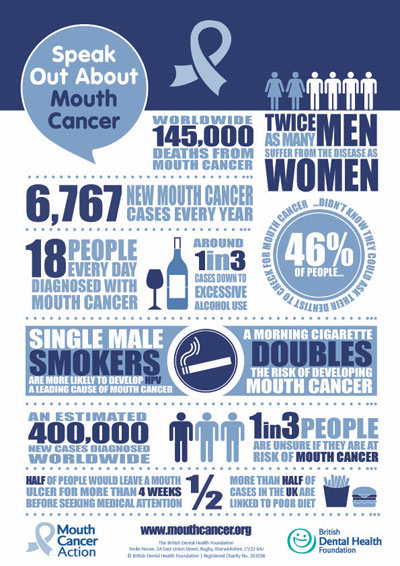
Are you Mouth Aware? Why not take-up a FREE mouth cancer screening at Balsall Common Dental Practice?
“Our team has witnessed the ravages of mouth cancer, either dealing with dental patients or for some of us, family members too, so we’re desperate to raise awareness about what we see as a considerable gap in national healthcare policy.”
HPV has long been recognised as a major cause of cervical cancer, which gave rise to the introduction of national vaccinations for girls aged 12-13 in September 2008. Other cancers HPVs are known to cause include vaginal, vulvar, penile and anal.
So what are the current vaccination arrangements in the UK, where did they begin and what is the thinking behind current policy?
Claim your FREE HPV Vaccination Consultation

Actor Michael Douglas talks about Oral Cancer and HPV
A Brief History of HPV Vaccinations
HPV vaccinations originated from the works of German virologist Professor Harald zur Hausen. His early research into cancer of the cervix in the 1970s and 80s discovered that various papillomavirus strains were the cause for almost all cases of cervical cancer. More recently, Hausen’s long-service in this field of medical advancement won him the Nobel Prize in Physiology or Medicine in 2008.
The first steps towards medical prevention arrived in the UK when the Cervarix vaccine was introduced to the national immunisation programme, the aim being to prevent widespread instances of HPV-related cervical cancer. It was first administered to girls aged 12-13 throughout the UK from September 2008, with a 2-year catch-up campaign aimed at covering all girls up to 18 years of age. Cervarix was replaced by Gardasil from September 2012 due to the newer vaccine’s wider protection that included genital warts.
Since inception, the UK has offered free HPV vaccinations to girls aged 12 to 13 annually, in a programme that claimed an almost 87 percent average uptake from 2013 to 2014. The programme is now known to have led to falls in the number of precancerous abnormalities of the cervix, according to research carried out among vaccinated girls in Scotland.
National HPV Vaccination Policy explained (Herd Immunisation)
According to the Joint Committee on Vaccination and Immunisation (JCVI) Interim Report published 19 July 2017:
“Vaccinating boys was unlikely to be cost-effective, as high coverage in girls would provide substantial herd protection for boys.”
The report’s introduction also underlines an important ‘Herd Immunisation’ concept upon which the vaccination programme policy is based as follows:
“The analyses considered consistently show that when there is a high uptake of HPV vaccine in adolescent girls, considerable herd protection is provided to the male population. While there are some additional population-level health benefits to both males and females by extending the programme to boys, impact and cost-effectiveness modelling indicate that adding boys is highly unlikely to be cost-effective in the UK, where uptake in adolescent girls is consistently high (over 85%).”
The JCVI Interim statement on policy poses two key questions:
1) In light of known instances of HPV related disease, including Mouth Cancer, is their financial argument for not extending immunisation to boys robust?
2) Is their “herd protection” argument valid in protecting the male population?
We’ll address these questions in the following section.
Claim your FREE HPV Vaccination Consultation

The Problem with National HPV Immunisation Policy
The problems with the JCVI interim assessment are various but we’ll focus in this article on just two areas, the JCVI’s financial position and their justification for their immunisation position based upon ‘herd protection’ theory:
First, let’s look at the financial position:
In light of known instances of HPV related disease, including Mouth Cancer, is the JCVI’s financial argument for not extending immunisation to boys robust?
According to HPV Action Group, the campaign coalition comprising 48 UK bodies that include the British Dental Association, the estimated vaccination costs for men in the UK is estimated at £20-22m a year. This figure, based upon 2000 cases per year, is dwarfed by the cost of treating HPV-related cancers and warts. They say the cost of treating anogenital warts alone in the UK is an estimated £58.44 million a year, with secondary care costs (treating HPV-related oropharyngeal cancer) likely to exceed £21 million a year. A further £7 million is spent annually treating men with anal cancer.
On the face of it, the JCVI’s financial modelling seems questionable.
Secondly, let’s look at the JCVI’s ‘herd protection’ argument:
Is the JCVI’s “herd protection” argument valid in protecting the male population?
The JCVI Interim Statement says:
“The analyses considered consistently show that when there is high uptake of HPV vaccine in adolescent girls, considerable herd protection is provided to the male population. While there are some additional population-level health benefits to both males and females by extending the programme to boys, impact and cost-effectiveness modelling indicates that adding boys is highly unlikely to be cost-effective in the UK, where uptake in adolescent girls is consistently high (over 85%).”
If we were to assume for a moment this presumed 85% threshold is a robust one, the problem with this position is take-up rates. Whilst the average take-up rates for girls have been known to hit the stated assumed required rates of 85%, notably in 2013-14, the take-up rates for girls in some regions can sit closer to 80% and in some areas has been reported as low as 50%.
This immediately leaves the unkindly referenced ‘herd protection’ stance with a problem, but as Daleswood Health’s Dr Oliver Denton points out the JCVI is already highly assumptive in the first place:
“At present, no one knows what percentage of the population needs to be vaccinated to create a herd immunity. It is not as simple as other disease transmissions with social and lifestyle variations likely to have a potentially significant impact.”
The idea of defending national immunisation policy decision based upon such questionable assumptions is both flawed and dangerous.
Our conclusion, one that is widely held by healthcare professionals, is that the case for boys vaccinations must be reopened.
Claim your FREE HPV Vaccination Consultation

The Case for Boys HPV Vaccinations
With the majority of the Health profession opposing the JCVI’s current assessment and with HPV a known leading cause of mouth cancer in the UK, the campaign for boys to be included in national vaccinations is gathering momentum. The British Dental Association (BDA), as a member of HPV Action Group in the UK, is urging the JCVI to consider blanket immunisation.
Dental experts have highlighted HPV as the leading cause of oropharyngeal cancer, especially among young people, and that rates are rising steeply overall. It is linked to 5 percent of all cancers worldwide, including some that affect only men.
Dr Graham Stokes, Chair of the BDA Health and Science Committee has said:
“By the time men reach a sexual health clinic, it’s often too late to protect them from HPV. The Committee’s interim decision may look ‘cost-effective’ on paper but it will leave too many of our boys and young men at risk.”
One good question for boys and their parents to consider when considering whether to vaccinate, would be to ask what would GPs and dentists have their boys do?
It’s a question we’ll answer next.
Majority of Dentists and GPs back calls for Blanket HPV Vaccinations:
In the new poll published by the campaign coalition HPV Action for World Immunisation Week (24-28 April 2017), 97% of dentists backed the expansion of the programme, with the same proportion saying if they had a son they would want them to receive the vaccination. 94% of GPs said they would support both positions. These statistics are extremely compelling.
‘Time for Vaccination Gap to Close’ Say Experts
As long ago as 11th July 2015 The Independent newspaper carried the story that Professor Harald Zur Hausen was calling for HPV vaccines for Boys:
“There is now a wealth of evidence that HPV also causes cancers in men, including anal, penile and throat cancer.” claimed the article. The same article reports that he also backed what he sees as an opportunity to “eradicate” HPV viruses altogether if the world developed global vaccination programmes for all children.
Professor Harald zur Hausen also said to HPV Action in 2015 that vaccinating boys was of “the utmost importance”, not only because boys can also contract HPV-related cancers of the throat, anus and penis, but because protecting boys is key to ending transmission of the virus altogether.
Dr Davenport adds:
“It is great that girls in the UK are given the choice to receive the HPV vaccine via the school vaccination program in year 9, but I also believe boys should be given the choice to receive the same cancer protection. Unfortunately, the recent Joint Committee on Vaccination and Immunisation review concluded that extending the HPV vaccination program to boys would not represent a good use of NHS resources. My boys are now the right age for HPV vaccination and they have both decided they would like to receive it.”
Claim your FREE HPV Vaccination Consultation

What’s the difference with Private HPV Vaccinations?
We spoke to local Private General Practitioner Dr Oliver Denton at Daleswood Health about HPV vaccinations available in the private sector:
“There are many different types of HPV which can be broadly divided into High and Low risk for causing cancer. HPV 16 and 18 cause almost 75% of all cervical cancer which is why the NHS started with Cervarix protecting against only these 2 types. On cost, the NHS changed to Gardasil which covers Low-risk HPV 6 and 11, the most common form of genital warts and offers no improved cancer protection. Here at Daleswood Health, we offer Gardasil 9, only available privately, which additionally covers against High-risk HPV 31, 33, 45, 52 and 58, offering much greater protection.”
“For girls, there is still the dilemma of whether to use the NHS or go private at a cost to receive vaccinations for a wider variety of strains, thought to cover at least a further 10%.”
The benefits of taking private vaccinations can extend beyond the difference in protection into the level of service too:
“One of the key differences with our private service is that you get a doctor-led service, with as much guidance as you need along the way.” as Dr Denton explains,
“We offer longer consultations as standard for all patients, allowing more time to explore concerns and explain, giving the patient more information and time to decide on options, but for children’s vaccinations we have adopted evidence-based steps to make the experience as stress-free as possible.”
“For example, we offer numbing cream in advance of vaccinations, which we recommend be applied to the area of the arm to be injected at least 1 hour before, so the arm is numb by the time we see our patients. We also employ distraction techniques with videos and toys and small rewards to make the experience as stress and pain-free as possible. The decision to proceed is always the parent’s or child’s and we will do all we can to ensure they make the right decision for them.
Claim your FREE HPV Vaccination Consultation

Recognising the anti-vaccination movement
This feature would not be complete without recognising the very vocal anti-vaccination movement, including those campaigning specifically against HPV vaccines. These groups comprise a mixture of people, including those claiming to have suffered sometimes troubling, sometimes crippling side-effects.
The symptoms and crippling conditions which some people experience are without question, awful for those involved. Yet whilst these reports include truly harrowing stories, statistically speaking the risks are low and the majority of reported cases (upon investigation) lack any form of a proven causal link.
Daleswood Health’s Dr Oliver Denton says:
“All medicines including vaccinations carry a risk but for them to be licensed for use they must also have a significant benefit.”
“It is essential that everyone fully understands the risks and benefits of a vaccination, conducts their own research and seeks professional help if they have questions. At Daleswood Health we help parents and children consider the options and make informed choices, with a focus on creating the most pleasant stress-free experience possible for the child.”
Commenting on the prospects of successes and side-effects arising from vaccines he elaborates:
“No vaccine is 100% effective at preventing an infection and in the case of HPV there are a number of strains that can cause disease for which there is not yet a vaccination. The latest vaccine Gardasil 9, which is not the version provided under the NHS, covers the largest number of strains and offers the widest protection currently available. Possible side-effects can include headaches, dizziness, nausea, injection site pain, swelling and redness as well as a temperature.”
It’s clear that the presence of side effects in the field of medicine is not in dispute. Indeed, it would be wrong to assume, or claim, that a medical treatment designed to provoke an immune system response, is never going to trigger an unwanted auto-immune reaction in some people. The trouble with figures quoted by some campaigners is that they do not tell the whole story.
MHRA HPV Statistics (a Special Category of Statistic)
One set of statistics that prove popular with anti-vaccination campaigners comes from the Medicines and Healthcare products Regulatory Agency (MHRA). The problem with these statistics is described by Dr Davenport:
“The way MHRA reporting works is that all possible associations are slavishly reported with no filtering,” he says of a system that includes self-reporting by concerned individuals, such as via the MHRA’s Yellow Card Scheme:
“The MHRA collates the information and looks for patterns to guide research. Most reported associations are later proved to be coincidence and unrelated. The vast majority of available research internationally finds no link between HPV vaccines and any serious illness or death, with one anomalous study showing a possible 2 in 100,000 association with an auto-immune disease called POTS.”
A visit to snopes.com – the internationally acclaimed independent fact-checking website run by research journalists – to see their research into claims about adverse reactions to HPV vaccines supports the view that the anti-vaccination position is alarmist in nature. In an article by Alex Kasprak, a science writer and journalist whose work has been featured in The Atlantic, Motherboard and New Scientist, Snopes says:
“Complications with regards to assessing causal links come with the fact that those who receive the Gardasil vaccine tend to be adolescent girls at an age when those prone to autoimmune diseases can often begin to develop symptoms.”
“POTS [one common form of autoimmune disease] occurs 5 times more frequently in women and the symptoms generally appear starting at age 12 — around the same time that many women are exposed to the vaccine. Autoimmune diseases, as a broad category, also occur much more frequently in women than in men.”
In the same research article they also state:
“To be clear, people are diagnosed with autoimmune disorders all the time in situations completely unrelated to vaccination. A few studies have shown a slightly increased risk for autoimmune conditions connected to HPV vaccination, on the order of 2 extra cases per 100,000 vaccinations. However, most large-scale studies have found no evidence that these vaccines appreciably raise the risk for any of these conditions.”
Claim your FREE HPV Vaccination Consultation

Informed HPV vaccination Choices for Boys
Education and preventative care are central to all our work here at Balsall Common Dental Practice, so we consider putting the right information into the right hands as a vital part of our service.
It is our opinion that this introductory feature makes a compelling case for boys and their parents to consider the merits of private HPV vaccinations and to seek a consultation.
With this in mind, we have teamed up with our colleagues at Daleswood Health in Barston to make a special offer, that includes a free no-obligation HPV consultation, plus discount for anyone that proceeds with private vaccination.
You can discover more about Daleswood Health at the end of the Offer.
Private HPV Vaccination Offer
We have teamed up with the team at Daleswood Health to make this special offer to anyone that wishes to explore private vaccinations, in the form of a FREE consultation and discount on their usual prices for vaccinations using Gardasil 9, which defends against a wider variety of HPV strains that its NHS counterpart.
Daleswood Health Offer
- FREE no-obligation HPV Vaccination consultation
- 10% discount on Gardasil 9 vaccination
How to Claim*
All you need to do is submit your name, telephone number and email address in the form on this page.
*Subject to availability
What to Expect: Next Steps
A member of the team at Daleswood Health team will call you to set up your free consultation. Should you be unavailable when they call, you will receive a follow-up email instead.
Claim your private HPV consultation (including vaccination discount):
About Daleswood Health
Daleswood Health is a Private General Practice which cares for people in and around Solihull in the West Midlands.
Set up by husband and wife team, Oliver and Alison Denton, with a vision to create a more personalised approach to General Practice, they opened their private practice with a combined 30 years experience of working within the NHS, wishing to help overcome the limitations the system place upon patients and doctors alike:
“One of the big frustrations that led us away from the NHS, a system we believe in,” explains Dr Oliver Denton, “was the increasing numbers of patients per doctor and the crippling effect this has had on the ability to provide a patient-focused service. At our NHS General Practice, our appointment times had reduced by 50% when the Royal College of GPs was suggesting a 50% increase and patients were no longer guaranteed to see the same doctor and enjoy the continuity and the benefits that a doctor-patient relationship can bring.”
“Daleswood Health offers a more traditional style of General Practice, with time and consideration given to patients by the same doctor, providing complete continuity of care. This is delivered in a flexible way, providing longer appointments at times that are convenient to you.”
Claim your free vaccination consultation and 10% Gardasil 9 discount today.
Claim your private HPV consultation (including vaccination discount):
There is no obligation to proceed with the vaccination at the end of your consultation.

